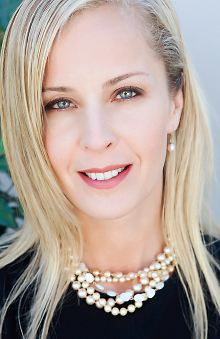Program Teaches Social Skills to Adolescents With Autism
Abstract
From making introductions to dating etiquette, a UCLA program is instilling lifelong social skills in adolescents and young adults with autism.
Many people take basic social behaviors—such as the ability to make friends and develop relationships—for granted, but for those coping with a mental disorder, acquiring these skills can be challenging.
Previous studies suggest that impaired social skills are often the most significant challenge for those with autism spectrum disorder. A report on the real-world challenges faced by those with autism as they transition to adulthood recently brought this point home (Psychiatric News, September 4), noting that one in four young adults with autism had experienced social isolation (a lack of contact with friends or participation in social activities) during the previous year, while many others had limited social or community participation.
“As children with autism make that transition into adulthood, many of them begin to disconnect from the world around them, because they aren’t given the skills they need to function,” Anne Roux, M.P.H., a research scientist at the A.J. Drexel Autism Institute in Philadelphia and the lead author of the autism report, told Psychiatric News.

“We don’t teach what we think is appropriate, but what we know works in reality; we base our rules and skills on the behaviors of highly successful people.”
For the past decade, Elizabeth Laugeson, Psy.D., an assistant professor of psychiatry at the University of California, Los Angeles, and a team of researchers have focused on this very issue. In 2005, Laugeson, along with Fred Frankel, Ph.D., a professor of psychiatry and biobehavioral sciences at UCLA, developed PEERS—the only evidence-based program that teaches social skills to young people dealing with autism.
In many ways, PEERS (Program for the Education and Enrichment of Relational Skills) works like other intervention programs, bringing adolescents and young adults with autism into a small-group setting and teaching them a “do’s and don’ts” of appropriate behaviors through discussions, role-playing, and homework assignments. Topics range from simple conversational etiquette to dating and romance.
The classes do not just involve the youth, however. Parents and caregivers of adolescents with autism are involved in the process as well, so they can become social coaches once the 16 weekly, 90-minute PEERS sessions are finished.
“Sixteen weeks is not a lot of time in the grand scheme of things, as we are thinking about preparing these youth for an entire adulthood,” Laugeson, who is the founder and director of the program, told Psychiatric News. “Getting caregivers involved was just a logical choice to make sure the lessons kept getting taught. And we owe a lot of our success to these caregivers who give their time to help the youth succeed.”
The other important aspect of PEERS involves the lessons themselves. “We use ecologically valid social skills,” said Laugeson. “We don’t teach what we think is appropriate, but what we know works in reality; we base our rules and skills on the behaviors of highly successful people.”
Laugeson and her colleagues have been demonstrating their own successes with PEERS over the years, showing that the program can improve the number of social relationships that adolescents with autism have and boost their self-esteem levels, while also reducing their depression and anxiety. Some evidence even suggests that these effects last up to five years after the program concludes.
Their most recent analysis, published June 25 in the Journal of Autism and Developmental Disorders, has now provided the first evidence that PEERS improves longer-term social skills in young adults (aged 18 to 24). This randomized, controlled study compared 22 young adults who received PEERS right away or delayed their therapy for 16 weeks (control); the social skills of the two groups were assessed at the start of the study, after the first 16 weeks, and 16 weeks later.
As with previous studies, the PEERS group reported significant improvement in their social skills and levels of social engagement at the end of the program; this included raising positive skills like assertion while lowering negative social symptoms such as repetitive behaviors.
“What was exciting was that 16 weeks after PEERS ended, we saw the participants had not just retained their social skills, but they had new improvements in empathy and responsibility scores,” Laugeson said, noting that the latter skill is especially valuable for maintaining employment.
As with the adolescents who had participated in previous studies, she plans to continue to track the progress of the group to see how their skills evolve over the next few years.
This most recent study represents just a small portion of what the PEERS clinic is working on, however. Laugeson’s clinic hosts several training sessions each year to certify therapists in PEERS methodology. She also has written two manuals for adolescent PEERS training, and a manual for adults will soon be published. For caregivers who may not have access to PEERS trainers, Laugeson wrote a lay-language book providing a general overview of how the program works.
Laugeson is now working to make PEERS an international program, which she noted involves more than just translating the text of the books. “Social skills are culturally laden,” Laugeson explained. “So what is appropriate in the United States may not be so in other parts of the world.” Working with local experts, she is making progress in 20 countries and has already released the first international manual in Korea.
In addition to geographic growth, the PEERS team is working to broaden the program to enhance the social skills of children and adolescents with attention-deficit/hyperactivity disorder (ADHD), anxiety disorders, and learning and developmental disabilities.
A team at Marquette University recently demonstrated that PEERS led to large increases in social activity among a study group of 20 adolescents with ADHD, and many had developed new friendships during the course of therapy. ■



